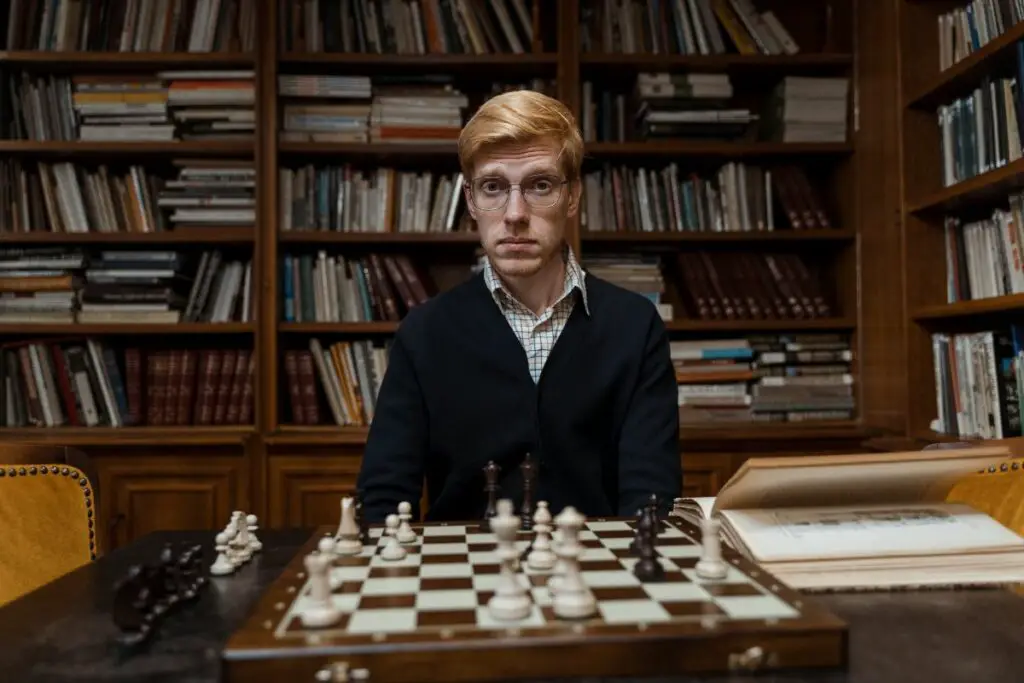
Whether you’re playing chess for fun or pursuing it as your career, you must’ve wondered whether it’s achievable to see your name among the famous grandmasters of the world. This wonderment must’ve ended with the question: can you become a chess grandmaster?
Any chess player can become a chess grandmaster. You can achieve this title by first achieving the norms and previous titles. Despite the journey being long and daunting, you can achieve this title by committing to excelling in chess, training, and participating in reputable chess tournaments.
While beating Magnus Carlsen might not be your ultimate goal right now, let’s discuss how you can become a chess grandmaster in the following article.
Can an Average Player Become a Chess Grandmaster?
Becoming a Chess Grandmaster is an incredibly challenging feat that demands exceptional dedication, talent, and hard work. While the title is not entirely out of reach for an average player, it remains a rare achievement.
For an average player, reaching these milestones is a daunting task. It often requires starting chess at a young age, receiving expert coaching, and participating in countless tournaments to gain experience and improve skills. It also demands studying opening theory, endgames, and tactics extensively, and analyzing games rigorously.
However, while becoming a Chess Grandmaster may seem improbable for an average player, it’s not impossible. With unwavering passion, relentless effort, and the right resources, many have defied the odds.
Still, it’s crucial to maintain realistic expectations and consider alternative paths within the chess world, such as coaching or commentary, if the Grandmaster title remains elusive. Ultimately, the journey to becoming a Grandmaster is a challenging pursuit that demands more than just average dedication and skills.
How Can I Be a Chess Grandmaster?
Becoming a Chess Grandmaster is a monumental achievement that requires dedication, talent, and a well-structured approach to chess improvement. Here are the key 12 steps to pursue the Grandmaster title:
- Get a Chess Coach: Get the advice of a skilled chess coach or mentor who can offer individualized training, help you identify your deficiencies, and assist you in creating a training schedule.
- Study: Spend a lot of time learning the game of chess. Analyzing games, learning opening theory, and comprehending other game elements including tactics, strategy, and endgames are all part of this.
- Practice Regularly: Participate regularly in regional, governmental, and worldwide tournaments. You can strengthen your talents, gain experience, and get the necessary Grandmaster norms that can get you going.
- Set Goals: Set attainable goals that are precise, measurable, and related to your chess development. Improve your chess rating (Elo) and strive to become an International Master (IM).
- Analyze Games: After each game, review and analyze your moves and decisions. Learn from your mistakes and identify areas for improvement.
- Master Openings: Develop a deep understanding of various chess openings. Choose a few openings to specialize in and learn the key ideas and strategies associated with them.
- Work on Endgames: Master essential endgame techniques, as strong endgame skills can make a significant difference in tournament play.
- Develop a Repertoire: Build a repertoire of openings and defenses that you are comfortable with and can use in tournament games.
- Train Tactics and Calculation: Regularly practice tactical puzzles to sharpen your calculation and visualization skills. Tactics are crucial for winning games.
- Stay Informed: Keep up with the latest developments in chess theory, follow top-level games, and learn from grandmasters’ play.
- Earn Norms and Achieve Rating: To become a Grandmaster, you need to earn three Grandmaster norms from strong tournaments and achieve a minimum Elo rating of 2500.
- Consider Financial Support: Pursuing the Grandmaster title can be financially demanding. Explore sponsorship, scholarships, or funding opportunities for young and promising chess players.
Tip number 13 has to be “Stay Dedicated”! Becoming a Grandmaster is a long and challenging journey that may take many years. Stay committed, even in the face of setbacks and losses.
How Do I Earn Grandmaster Norms and Titles?
In order to qualify for Grandmaster norms and titles in official FIDE (Fédération Internationale des Échecs or International Chess Federation) events, a person has to satisfy certain performance requirements.
(Fédération Internationale des Échecs or International Chess Federation) events, a person has to satisfy certain performance requirements.
The following requirements must typically be met in order to become a Grandmaster:
Achieve a Minimum Elo Rating
Grandmaster norms are only open to players with a minimum Elo rating of 2500. Elo is a scale that quantifies a player’s strength in comparison to other players.
Perform Exceptionally in Tournaments
To obtain Grandmaster norms, you must compete in international competitions and meet particular performance standards.
There are three different kinds of norms: those obtained from grandmaster-only tournaments, those obtained from grandmaster-included tournaments, and those obtained from team events.
- Norms from tournaments with grandmasters: You typically need to score a specified number of points (e.g., 7 out of 9) in a tournament where a certain percentage of your opponents are Grandmasters.
- Norms from tournaments without grandmasters: Similar to the above, but earned in tournaments where fewer or no Grandmasters are present.
- Norms from team events: These are earned in team competitions, such as the Chess Olympiad, where you achieve a required performance rating over a certain number of games.
Performance Rating
In addition to meeting specific point requirements, you must achieve a performance rating in each norm event that meets or exceeds the minimum performance rating specified by FIDE. This performance rating is calculated based on your results against your opponents and reflects your level of play in that event.
Multiple Norms
To become a Grandmaster, you need to earn three Grandmaster norms in events that meet FIDE’s norm criteria. These norms should be from different tournaments.
After you meet these requirements, you can submit an application to FIDE for the Grandmaster title. It’s important to keep in mind that the road to becoming a Grandmaster is difficult, and it frequently requires years of commitment and participation in prestigious international events.
Why Is Becoming a Chess Grandmaster a Significant Achievement?
becoming a Chess Grandmaster is an elite achievement, and not everyone who sets out to achieve it succeeds. However, the journey can be incredibly rewarding. I know that you can’t help but ask why. Let’s see!
Showcasing ability
Being a chess Grandmaster represents the pinnacle of skill and knowledge in the world of chess. Grandmasters have a deep understanding of chess theory, strategy, and tactics, allowing them to compete at the highest levels of the game. Their ability to consistently outperform the vast majority of chess players showcases their exceptional skills and dedication.
Official recognition
The Grandmaster title is regarded as a symbol of excellence on a global scale. Given by the World Chess Federation (FIDE), it is a coveted and recognized symbol of a player’s level of game expertise. This honor is acknowledged not only by the chess community but also by the larger sports and academic communities.
Being a chess ambassador
Chess grandmasters are frequently regarded as ambassadors. By their matches, coaching, and commentary, they considerably contribute to the promotion and popularization of the game of chess. Their fame encourages aspiring chess players and promotes the game’s expansion on a global scale.
Being an inspiration
Being a Grandmaster is a difficult and hard path that takes years of study, training, and competition. It symbolizes not only mastery of the game of chess but also self-control, tenacity, and devotion.
As a result, earning the title of Grandmaster is more than just a personal triumph; it also serves as an example for people across all industries to pursue excellence and their hobbies.
What is the typical age at which chess players become Grandmasters?
Although the usual age at which chess players achieve Grandmaster status varies, it frequently falls between late teens and early twenties. Nonetheless, it’s significant to note that there is no set age limit for becoming a Grandmaster; rather, it largely depends on personal talent, commitment, opportunities, and the country’s chess culture.
